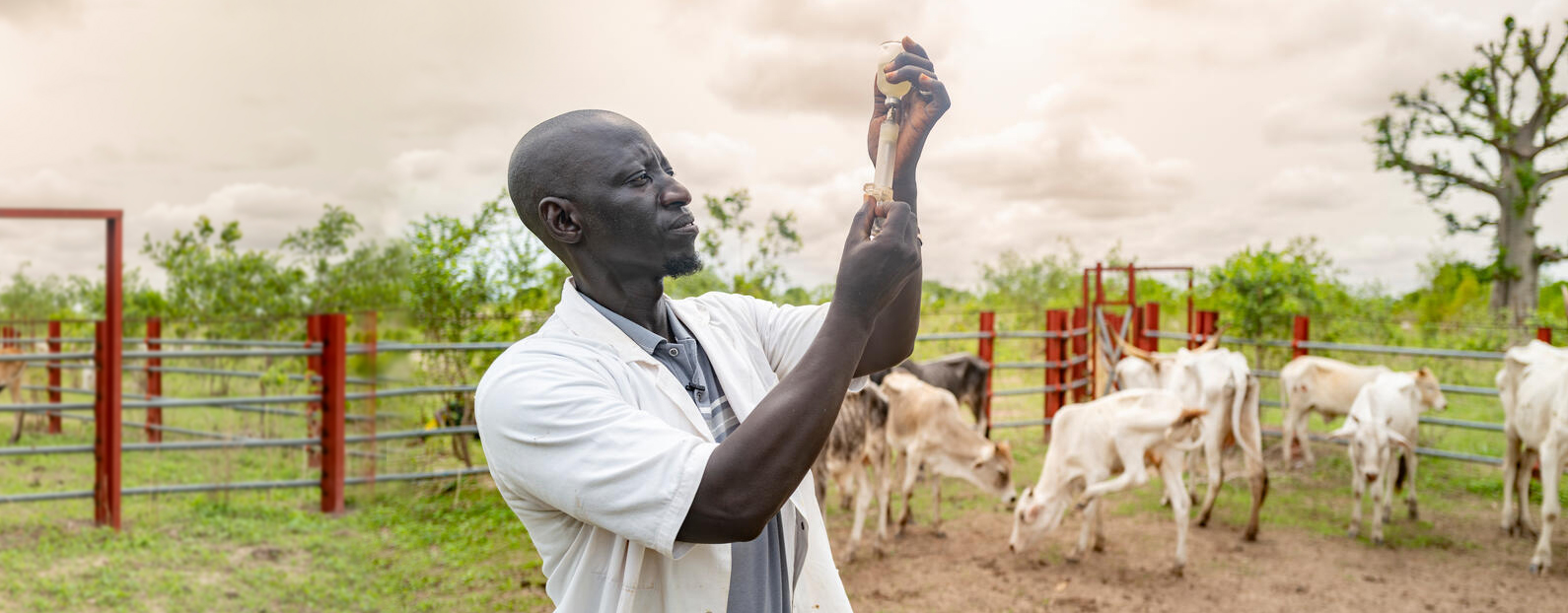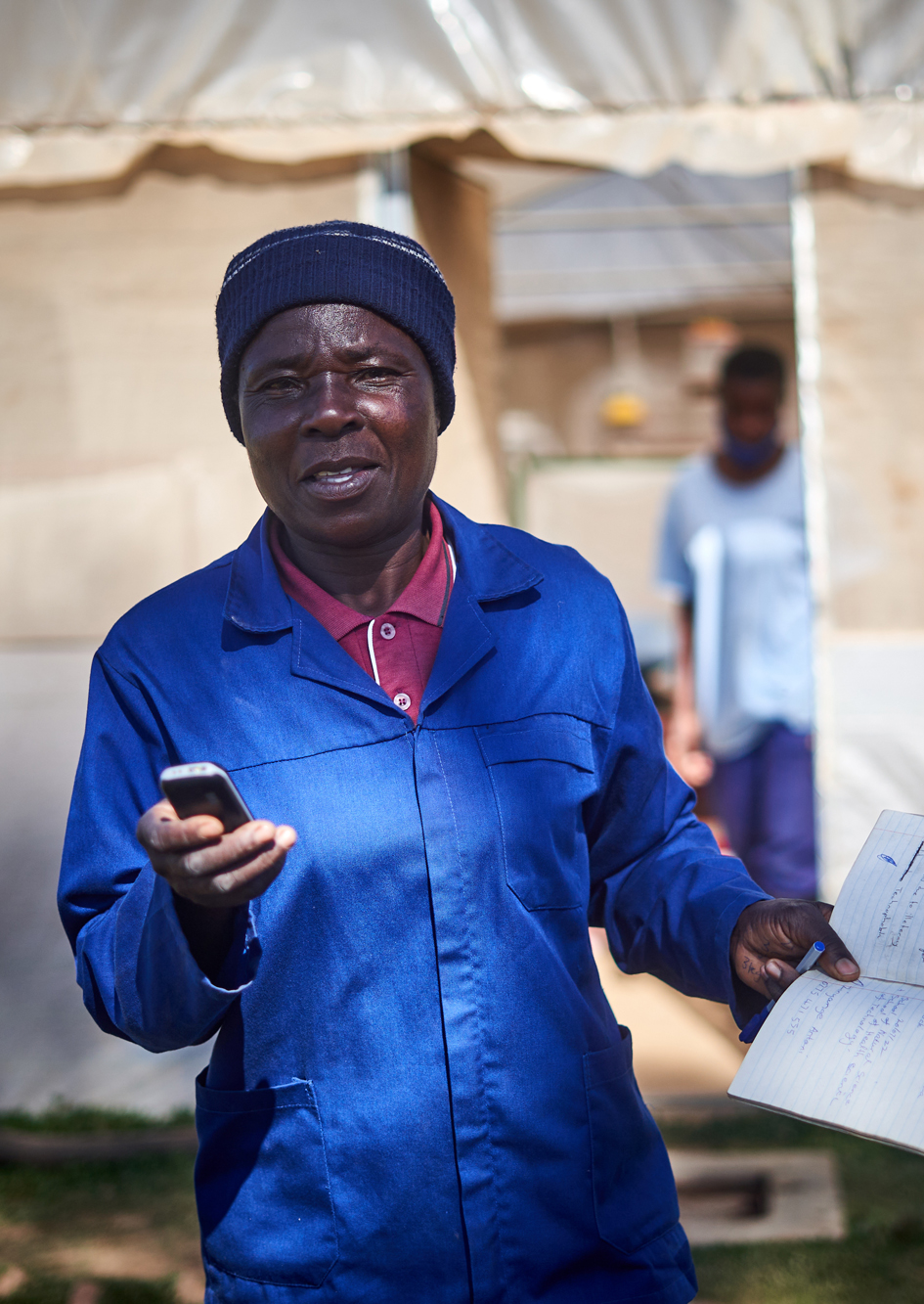
Bridging law and life: How One Health legislation transforms agrifood systems
In the green pastures of Senegal, a veterinarian examines a bottle of medicine with unusual suspicion. Across the border in Mali, a food safety officer applies new regulations designed to protect both human and animal health simultaneously. These seemingly separate moments are actually connected threads in a revolutionary approach to how we govern our agrifood systems – one that recognizes the fundamental interconnectedness of human, animal, plant and environmental health.
The challenge facing our global agrifood systems has never been more complex or urgent. Traditional approaches to food safety, animal health, and environmental protection have operated in silos, each addressing symptoms rather than underlying causes. But a new paradigm is emerging, one that acknowledges a simple yet profound truth: the health of people, animals, plants and ecosystems are inextricably linked.
The One Health revolution
At the heart of this transformation lies the One Health approach, a framework that seeks to balance and sustainably optimize the health of people, animals, plants, and ecosystems. This isn't merely an academic concept – it's a practical response to real-world challenges that demand integrated solutions. When contaminated animal feed leads to human illness, when antimicrobial resistance spreads from farms to hospitals, when environmental degradation threatens both wildlife and agricultural productivity, the artificial boundaries between disciplines become counterproductive.
Yet even the most enlightened approach faces a fundamental challenge: how do you implement integrated solutions within legal frameworks that were designed for a segmented world? Most national legislation treats food safety, animal health, plant health and environmental protection as separate domains, creating dangerous gaps where contaminated food products might fall under multiple jurisdictions, leading to delayed responses and confused accountability.

The ACE programme: A model for change
One example of this transformation is the strengthening legislation and building capacity to support implementation, compliance and enforcement (ACE) programme, launched by FAO in partnership with several African nations. Designed to strengthen legal frameworks and enhance institutional capacity, the programme bolsters the development and implementation of more resilient agrifood systems within the One Health approach. What makes the programme particularly innovative is its focus on strengthening One Health approaches in legislation and building institutional capacity required to implement, monitor and enforce that legislation effectively.
Operating in Zimbabwe, Eswatini, and Lesotho, the ACE programme addresses different complex challenges demanding a One Health approach, from the detection of substandard veterinary medicines in Zimbabwe to food safety and climate change in Eswatini and antimicrobial resistance in Lesotho. FAO has led a comprehensive legal analysis in each country. This work includes identifying gaps in mandates, enforcement mechanisms, and institutional coordination, alongside strengthening the capacities of frontline actors through targeted training and tools. Based on these findings, the programme delivered targeted capacity-building for enforcement authorities to strengthen enforcement practices and raise awareness.
The ripple effects of reform
The impact of integrated legislation extends far beyond immediate health and safety concerns. When legal frameworks align under a One Health approach, they create conditions for innovation and collaboration that wouldn't otherwise exist. Farmers gain access to better veterinary medicines because enforcement mechanisms can detect and eliminate counterfeit products. Food processors invest in sustainable practices because regulations provide clear, consistent standards.
The environmental benefits are equally significant. Traditional agricultural legislation often treats environmental protection as a constraint on productivity rather than a foundation for long-term sustainability. One Health approaches recognize that environmental health is fundamental to agricultural productivity, creating regulatory incentives for practices that protect soil health, water quality, and biodiversity while maintaining economic viability.
Legislation based on the One Health approach inherently recognizes that the health of communities depends on the health of their environment, plants and animals they depend on for food and livelihoods. This recognition can lead to more equitable approaches to resource management, greater community participation in decision-making, and more effective protection of vulnerable populations.
Challenges and the path forward
Implementing One Health legislation is not without challenges. Existing institutional structures resist change, and professional communities that have operated independently must learn to collaborate across disciplinary boundaries. Resource constraints represent another significant challenge, as developing comprehensive regulatory frameworks requires expertise, technology, and institutional capacity that may not exist in all contexts.
Perhaps most significantly, One Health legislation requires a fundamental shift in how we think about risk and responsibility. Traditional approaches assign responsibility for specific outcomes to specific actors, but One Health approaches recognize that these responsibilities are shared and interconnected, requiring new forms of accountability and collaboration. Progress depends not only on legal reform, but also on building the knowledge, tools and partnerships needed to support a new generation of regulatory actors, across ministries, inspectorates, judicial bodies and communities.
The success of programmes like ACE suggests that this transformation is not only possible but practical. When legal frameworks align with the interconnected reality of health challenges, they create conditions for more effective, sustainable, and equitable outcomes. The veterinarian in Zimbabwe examining suspicious medicine and the food safety inspector in Eswatini implementing new regulations are part of a broader transformation that recognizes the fundamental truth that healthy agrifood systems depend on healthy relationships between people, animals, plants and the environment.
Ultimately, the integration of One Health approaches into agrifood system legislation represents recognition that the health of people, animals, plants and ecosystems are not separate concerns but aspects of a single, complex system. The legal frameworks that govern this system must reflect this reality, creating conditions for sustainable, equitable, inclusive and resilient agrifood systems that can nourish both current and future generations.
Find out more

Highlights
One Health global policies and declarations
The global community has increasingly recognized the importance of the One Health approach to address complex, interconnected challenges.

Tool
FAOLEX Database
FAOLEX is a comprehensive and up-to-date legislative and policy database of national laws, regulations and policies on food, agriculture and natural resources management.

Community of Practice
One Health Governance
A platform for policymakers, experts, practitioners and other stakeholders to share experiences, discuss governance challenges, and co-develop solutions for enhancing One Health governance frameworks and policies.
